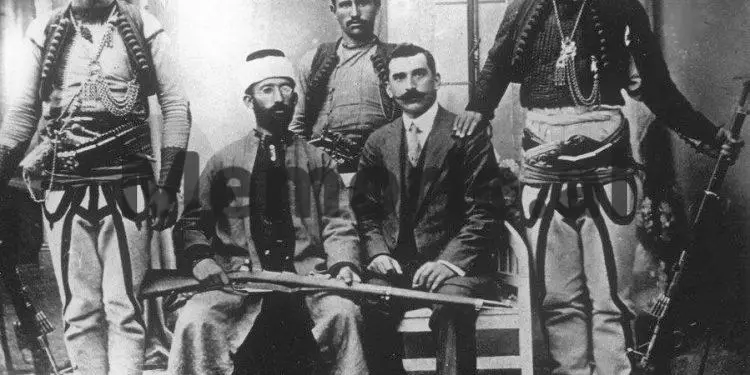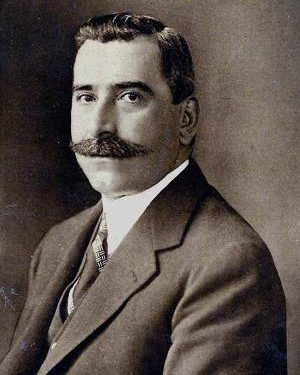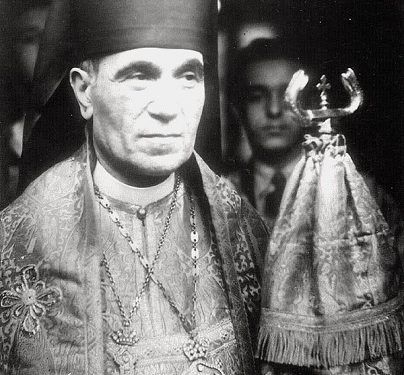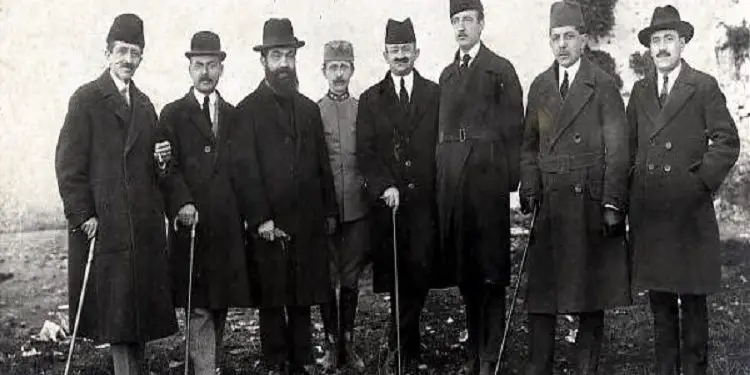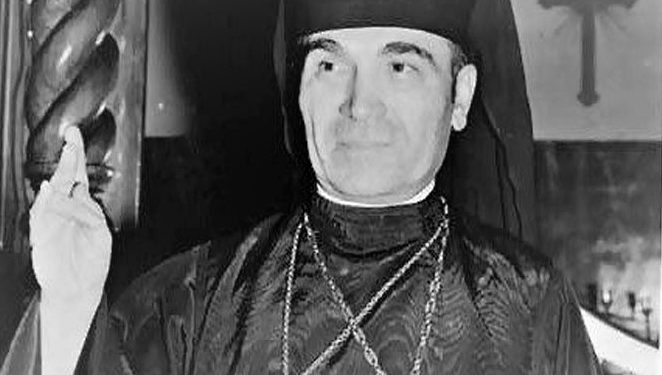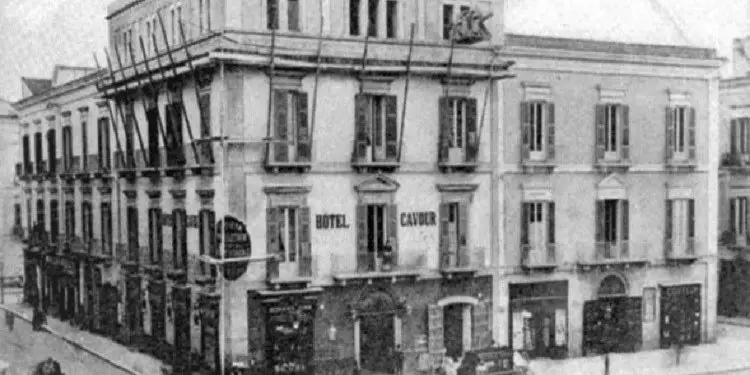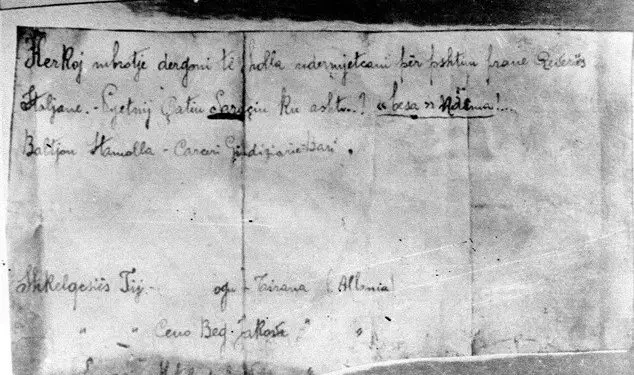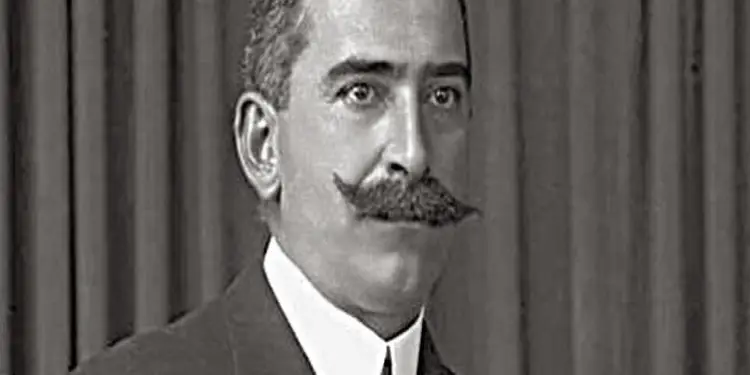By Dr. Vehbi Hoti
Memorie.al / Luigj Gurakuqi is one of the most outstanding personalities of our patriotic, democratic, educational and cultural movement at the end of the National Renaissance and the beginnings of Independence. A great polyhedral figure: Luigj Gurakuqi was a politician and diplomat, outstanding statesman, linguist, poet and prose writer, esthete and literary critic, pedagogue and textologist, economist and financier, orator, man of culture and science, of speech and action. , of the feather and of the rifle; in his writings he used the pen names Jakin Shkodra and Lek Gruda. Above all, he was a great patriot, an ardent patriot, co-founder of the Albanian state of the modern era. On the other hand, Luigj Gurakuqi, as rarely anyone, experienced the most culminating events of the country’s life in the first quarter of our century. He was a direct participant in most of them, even among the organizers of their main leader.
Family circle
Luigj Gurakuqi was born in Shkodër on February 19, 1879, and grew up in the bosom of a cultured commercial family from Shkodra, by parents Pjetër and Leze Gurakuqi. His father dealt with his education in a special way. Pjetër Gurakuqi was a merchant with a relatively high culture, with a wide circle of friends, among the merchants and intellectuals of Shkodra, with an active life in the city bazaar and commercial relations with Venice and Milan. The house of this cultured and well-travelled merchant was buzzing with the entrances and exits of people who came to discuss the problems of the time and learn the news of the world.
Always sitting next to his father, little Luigi listened attentively to the conversations and discussions about events of the past and the day, about the heroic wars of the people against the Ottoman conqueror and the Balkan predators, as well as about the men who led them. Remembering these years, Gurakuqi, a student, would write: “I miss having them back home, listening to your father tell me, as before, about the events of the Pashallars of Shkodra, the bravery of the Malcors and the wars of Montenegro, things that he had something from him, that he himself had seen a lot”.
EDUCATION
He attended elementary and incomplete secondary school at Saverian College, which was the most organized and complete school that Albania had at that time. Luigji was among the most diligent students of the school and very soon, at the age of 13, his inclinations for literature and literary creations appeared. He then completes his secondary education at Arbëresh College of Saint-Mitre Korona, where he had De Rada as a teacher, a figure who inspired him throughout his life; he was the first Albanian student there. For 2-3 years, he studied medicine, continuing and graduating in natural sciences.
He continued his university studies in Naples (Italy) in the years 1901-1906 and made a successful debut as a lyric poet, where as a guide he had the poet of the longing, Filip Shiroka, short prose writer and publicist. With the work “Poetry in the Albanian language with an Albanian-French dictionary in Marim”, (Napoli, 1906) he made the first successful attempt to codify the metric of Albanian poetry. In the same year, he published the book “Abetar i szkyp mas abevet of the Union of Istanbul with stories in two dialects” in Bucharest and in Naples; “Dictionary Albanian-French and French-Albanian, of new words”, etc. Luigj Gurakuqi published many poems that stand out for their patriotic content, lyricism and rhyming technique. With his articles, he also provided an important contribution to the aesthetic thought and Albanian literary criticism.
In the personality of Luigj Gurakuqi, the broad and encyclopedic culture stands out. He was a deep connoisseur of the cultural heritage of his people and of the classical Roman and Latin culture. The history of the country and the world were permanent objects of his studies. He knew archeology and economic and financial sciences, national and European pedagogical educational heritage. Gurakuqi was a polyglot. In addition to Albanian, he knew Latin, Italian, Turkish and French, knew Greek and German, probably also English.
Patriotic and political activity
After 1906, Luigj Gurakuqi devoted himself entirely to the political activity of the war for national liberation. In the summer of 1907, he collaborated with Bajo Topulli, for the organization of the uprising in the North. In 1908, in July, he arrived in Shkodër, adored by the people, they escorted him home. In November, he participates in the Monastery Congress, alongside the representatives of Shkodra, Father Gjergj Fishta, Dom Ndre Mjeda, Hilë Mosit and Mati Logoreci; where he was elected vice-president and member of the committee for the unification of the alphabet.
Gurakuqi had the merit and fate of directly leading the struggle for the creation of the Albanian national school and our educational system. Under his leadership, the first foundations of the state primary education system in Albania were laid. The first experience of establishing the Albanian educational administration was created, the first school documents were drawn up, a whole system of preparation and qualification of teachers was established. His hand wrote the alphabets adopted by the Congress of Monastery and revealed them to the delegates. In 1909, he was appointed director of the first normal school that was opened in Elbasan, where he provided valuable assistance for putting education on a national basis.
Gurakuqi has the merit of clearly defining, more than any predecessor, the concept of the Albanian national school, the content, character and principles of its construction. He demanded that the whole spirit and content of the school should be in function of national goals and ideals. Gurakuqi is the most prominent Albanian textologist of the beginning of our century. He gave the Albanian school, as author and co-author, 8 textbooks, with a volume of 738 pages. In 1911, Gurakuqi participates in the uprising of the Mbishkodra highlanders and, as one of its leaders, drafts together with Mati Prennushin, the Memorandum of Greece, or the “Red Book”, as it is otherwise known to the insurgent highlanders, the fire of the weapons of to whom he would warn of independence.
In 1912, he developed a dense activity for the organization of the general uprising. He participated in the Bucharest meeting and the Declaration of Independence (November), was the closest collaborator of Ismail Qemali, and the writer of the Declaration of Independence. “For every Albanian, – ordered Gurakuqi, – the day of November 28 should not be just a day of celebration, where everyone should analyze his life and, with his hand on his heart, ask himself, if he has done everywhere and always the duty you had before the homeland”.
In the Provisional Government of Vlora (December 1912) he was elected Minister of Education and established compulsory primary education for boys and girls. During World War I, with the occupation of Shkodra by the Montenegrin army, Luigj Gurakuqi was exiled to Podgorica. Participates in the London Conference in 1913, with Ismail Qemali and Isa Boletini. During the Austro-Hungarian occupation, taking advantage of the position of the general director of Education and the political conjuncture, he opened many Albanian schools. He was one of the founders of the “Literary Committee” in 1916, where he proved to be a good master of the Albanian language, creating, among other things, a string of new words that entered its fund.
Gurakuqi has had a very serious and long-term commitment to the problems of linguistics. From the beginning he adhered to the thesis, both patriotic and scientific, that language is the first sign of the nation, the basic condition for its existence and the best tool for national unity. According to Gurakuqi, the language and the nation are one body and one soul, they are; “meat of thù”. He has outstanding merits in the development of the Albanian literary language, in the elaboration of the literary language and in the unification of the written Albanian, in the stabilization of spelling, in the enrichment of the dictionary, in matters of lexicology, terminology and grammar. Gurakuqi is the most prominent Albanian textologist of the beginning of our century. He gave the Albanian school, as author and co-author, 8 textbooks, with a volume of 738 pages.
Education continued to remain, as he himself says, the dearest branch of his heart. He presented in the Albanian parliament, very interesting ideas and opinions about the educational policy and the path that the Albanian school should follow. Gurakuqi had a clear vision for the role of the school in a modern society, for the freedom and fundamental rights of the individual in the field of education, and requested the development of the Albanian school on legal, scientific and pedagogical bases. Strange for his nature, he was also given the post of Minister of the Interior, in the cabinet of Hasan Pristina for a few days.
He participated in the Durrës Congress in 1918, where he was elected Minister of Education, in the provisional government, and a member of its delegation to the Paris Peace Conference. Since the first meeting of the Congress of Durrës, in 1918, Luigj Gurakuqi “is against the mention of the words Toska and Gege and Christian and Muslim in a national meeting”, he asks that such words be prohibited and adds that; “…the issue of freedom and respect for religions in Albania should be resolved according to the formula: ‘Free religion, in a free state.’
Luigj Gurakuqi elaborated these ideas and thoughts in detail in discussions in the Albanian parliament and, especially in the article “The bases of cooperation, between the Mohammedan and Christian Albanians”.He was categorically against those who thought that in order to remove religious conflicts that could arise, religious beliefs in Albania should be extinguished more gently and more strongly.In 1921-1924, he was a deputy of Shkodra in the National Council, where as one of the leaders of the democratic opposition, he fought for the democratization of the life of the country, for the relief of the peasants’ condition from severe oppression, for economic and cultural development and for the protection of independence, from the enslaving intentions of the imperialist powers. All his life, Luigj Gurakuqi’s soul burned and his heart ached, for the injustice done to our nation, dividing his body in half. He remained faithful until the end of his life to the ideal, to see one day united around the motherland, all the brothers of the nation.
He complained that: “They took our cities and left us the mountains; they took the most precious places of our country, leaving us like a body without a head.” Gurakuqi’s denunciations of the ethnic cleansing policy pursued by the Serbian chauvinists sound fresh: “The Yugoslav government will not stop at any means”, he declared, “to change the face of Kosovo”. For the extremely difficult situation of the Albanians in the Yugoslav state, he blames the Great Powers, who slaughtered the Albanians and their territories, for their own interests and those of their allies. Luigj Gurakuqi was a partisan, to help and defend the rights of the population of Kosovo. He called it an important task of the Albanian state.
The only fault of the Kosovars was that they were Albanians and wanted to remain Albanians. Among the strongest speeches of Gurakuqi in the parliament, are those on the protection of the Albanian population of Kosovo. When the Yugoslav government, in a telegram, called the Albanian government’s interest and concern for the extremely difficult situation of the Kosovo Albanians interference in its internal affairs, Gurakuqi, full of indignation and anger, would take the floor and say:
“How could a government (Yugoslavia), which has planted our fields with the graves of our brothers, tell me that we are interfering in its internal affairs? How could a government tell me that we are interfering in its internal affairs, when we see that because of it, with thousands of children and women, they behave naked and barefoot here in Tirana and feed on the services of the Americans and the surplus of the army? The Yugoslav government has no right to accuse us of a thing like this, when the Albanian parliament, only in the name of humanity and humanism, demanded an end to Serbian atrocities against Albanians”.
He actively participated in the “Democratic-bourgeois Revolution” of June 1924, being one of the inspirers of its main leaders. In the government headed by Fan S. Noli, he was appointed Minister of Finance. He stood out for his high sense of responsibility and for his determination and efforts to create and strengthen the Albanian democratic state. He participated in the Geneva Conference, alongside Noli, in 1924.
When in Parliament, Ali Këlcyra, remarks to him about his liberal attitudes, Luigji replies; “Mr. Ali Këlcyra told me as a rebuke that I am a liberal. Thank you and his lordship can be sure that death will separate me from my liberal thoughts.” Declaring himself democratic and liberal, Gurakuqi said that; it is neither revolutionary nor; Bolshevik e; neither socialist, these concepts since the 20s, were equivalent and had the meaning of changes by violence, by force of arms, by uprising. Gurakuqi was for the peaceful solution of problems, between laws, solutions; “fairly and gently”.
As such, he was against leading the people to the path of armed insurrection. Having these concepts on the role of the law, and the peaceful solution and not the uprising and violent solution of problems, Gurakuqi was involved in the Revolution of 1924, after a hesitation and strong opposition. “Gurakuqi withdrew (in the revolution) after a strong opposition. They can testify that they happened in Vlora”, – wrote Stavro Vinjau.
Among the memories of Át Anton Harapi, it is shown that they were just preparing for the release of the new issue of the newspaper “Ora Maleve”, a telegram from Vlora, informing them about the start of the Revolution, after Father Harapi asked him, what was likely, Gurakuqi he had answered; “They turned us off Father Anton: what, they started the revolution there in Vlona, our deputies… so it’s pointless to complain: I have to be in solidarity with my friends, let’s start it too”.
The above position of Luigj Gurakuqi, Father Anton Harapi reinforces below: “The day of leaving Albania, the question; How can you go bankrupt like this and you are leaving Albania, Gurakuqi blushes, covering his mouth, with tight lips, he answers: “Father Anton, they have discredited us very badly, the communists have declared us, in the opinion of Europe”. Father Anton Harapi concludes that Gurakuqi was able to act against his convictions, however, when Luigj Gurakuqi left his “middle line”.
Killing
After the suppression of the ‘June Revolution’, he went to Italy, where on March 2, 1925, he was killed in Bari by Baltjon Stamolla, at the door of the Hotel “Cavour”, said to be the cousin of Çatin Saraçi, but in some places, he is described as the cousin of Louis himself. It was the evening of March 2, in the hotel restaurant; Luigj Gurakuqi was having dinner with two of his friends and the wife of one of them: Riza Dani with his wife, Makbule, and his brother, Dan Hasani. He asked permission from them, presenting the reason: “I will go to Sotiri, because I promised a doll to his daughter”. Ahmet Zogu, Ceno Kryeziu, as well as Çatin Saraçi had a hand in the organization of this assassination, as evidenced by the letter sent by the killer asking for help:
“I ask for protection, send money, and intercede for sending to the Italian Government. Ask Çatin Saraçi, where is he…? “besa” help!… Baltjon Stamolla – Carceri Giudiziarie, Bari.
His Excellency, Ahmet Zogu Tirana (Albania)
His Excellency, Ceno Beg Jakova (Gjakova)
Çatin Saraçit, Hotel de la Ville…”.
His friend, Hasan Prishtina, would say on his grave: “Sleep in peace, Gurakuq, we will get your reward, with the progress of Albania”.
Mindset and deeds
In his worldview philosophical formation, Luigj Gurakuqi was an objective idealist. He held liberal attitudes towards religion and religious practices, staying away from any religious fanaticism. But Luigj Gurakuqi was not even affected. He accepted the existence of God as the creator of the universe. According to him, “God is a being that has neither beginning nor end, that nothing can be compared to him, that:
“…heaven and earth, plains of ghana,
High mountains, wide seas,
Everything was created by God,
I don’t know how much I know, I don’t know the beginning or the end!
It is this almighty God, in whom Gurakuqi has hope and faith that he will take the destinies of Albania and the Albanians into his hands, that he will bless their work and fulfill their desire for freedom and independence. The dialectic of development is among the most rational aspects of objective idealism. L uigj Gurakuqi accepted the principle of the development of the world, of nature, of society and of the human spirit, that everything in the world “changes without reason”, that “the world is like a wheel, which moves without a row” and that “only fatalists they are shriveled, they are afraid of progress… they contend (enjoy) being always in a hard and lifeless state (state).
Although he was not religious and held liberal attitudes towards religious practices, Gurakuqi appreciated the role of religion for individual and social life. According to F. Noli, “he was so far from the narrow religious fanaticism that the Mohammedans of the North had an unlimited faith, so much so that in Gegeri, there was no other leader who united Catholics and Geg Mohammedans around him. He has been so little regionalist that since the national issue was born; there has not been a patriot as beloved among the Toscans as Gurakuqi”.
Throughout his life, Gurakuqi had excellent relations with all those leaders of the religious communities who fought for a free Albania. On September 26, 1913, the Abbot of Mirdita sent a telegram to Gurakuqi, the Minister of Education of the Provisional Government in Vlona, where he wrote: “I am asking the Committee of the meeting of Vlona and shook the hand of the President of the respective Government, for the union and bond that we have with them, in all respects for the development and prosperity of Albania shadow of Ismail Qemal Beg and those men who know and respect the flag of Albania. I wish good health and, white cheeks, to all those Albanians, who with deeds of wisdom, faith and love, become worthy of care. “Europe, which is struggling more and more, it is more difficult for our Motherland”.
The patriotic, democratic, educational and cultural movement gave the personality of Luigj Gurakuqi, the weight of nationwide proportions, made him a very authoritative and reliable figure, even among the most difficult and delicate jobs, for the fate of the homeland. Luigj Gurakuqi gave everything to this movement: all his physical and mental strength, he gave it his youth, the joys of life, his soul and his blood. He was ready to fight and die, not only for Shkodra, which he loved very much, but also for every corner of the earth, which they call Albania. From Paris, in December 1919, when the fate of Gjirokastra was in danger, he wrote to Myfi Libohova; “I am ready, if the need arises, to see the way, to come and kill myself for Gjinokastra, and for the honor of the homeland”.
Luigj Gurakuqi has the merit of being one of the main drafters of the educational and cultural program of our national movement for autonomy, freedom and independence. In this context, he was the best connoisseur and propagandist of the traditions of our people, of cultural and patriotic traditions, of oral and written tradition and of the psychology of our people. The essence of his attitude in this field is the idea that; the first ones, the ancestors, should not be denied, because otherwise we will not be Albanian, we have no one to go back to and no one else to be inspired by. By fervently propagandizing the traditions of our people, he had a clear goal: Albanians recognize their own values, recognize and appreciate the values of their blood. Gurakuqi tried to give as realistic a picture of Albania as possible.
Therefore, he pointed out the shortcomings and mistakes of the Albanians, calling on them to fight and correct them. He was particularly concerned about the blood feud. He condemned it as a harmful act and as a means of inciting disunity among the Albanian people by foreigners. As a creator, Gurakuqi had excellent relations with the country’s intellectual elite. Luigj Gurakuqi dedicated some of his works and creations to Gjergj Fishta, Prenk Doçi, Hilë Mosi and Mati Logoreci. But also many dedications and devotions are addressed to Gurakuqi. Like Filip Shiroka, Hilë Mosi, continues to call it “the nightingale in the ringing”, which it costs; “The nightingale doesn’t sing”. Gjergj Fishta dedicates the work “Pika e voeset” to him. Memorie.al
Syrgyn Dead
(Elegy for Luigj Gurakuqin)
My sister, I mourn for my brother,
With three bullets they fell to us,
They killed us and insulted us,
They called us traitors.
Whether you wanted it or not,
To cry when they laugh,
To wear when undressed,
Under’ ô moj, ra deşmór.
Ben’ ô moj, vajtó takes the mountain,
Larot overthrow the boy
Since Ismail Qemali
Raised a brave flag.
My dear, I cried in Vlora
Where he gave you freedom, crown,
Soul white as snow,
You didn’t even give him a grave for him.
My goodness, what has he tried?
Mouth-honey and heart-iron
Syrgjyn-jjal’ and Syrgjyn dead
This bookish mammoth.
- S. Noli




